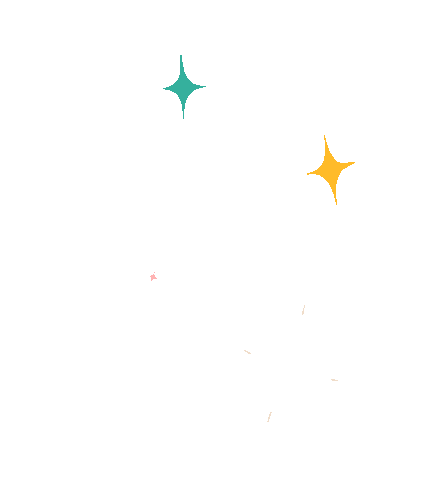


WINTER 2020 VOL. 1 ISSUE 2 | NOV 13, 2020

I didn’t know that I had been holding my breath for the last four years until I felt the relief of the full-body exhale. As a Queer Asian child of Immigrants in America, these last four years have been traumatic—but I can only say this in retrospect. Sometimes we don’t realize we’ve been in survival mode until we arrive at the safety of, “We survived.”
Even in the relief of the imminent end of the Trump Presidency, I remember the bleakness more clearly than I can remember hope. What if the transition of power refuses to be peaceful? What if BIPOC continue to suffer in the white hands of Capitalism? What if good doesn’t prevail over evil? Fear is insidious in this way—the way it clings to you, whispering catastrophes onto a new horizon. But maybe we should allow ourselves to wonder one more “what if”: what if there is magnificence beyond that new horizon?
Kamala Harris is the first female, black, South Asian, child of immigrants vice president-elect in U.S. history. Let us be clear: this is a big. fucking. deal. My fellow QASC team-member, dear friend, and South Asian daughter of immigrants from California (just like Kamala!) Maya Reddy, posted this picture of her bb self with her mom on the day that Kamala’s victory was announced. It was this picture—the triumphant pride on her mother’s face, the trusting happiness in bb Maya’s eyes, the wild, unstoppable baby hairs of a brighter tomorrow—that gave me permission to be hopeful. To exhale joy.
I asked Maya what Madame Vice President Kamala's achievements meant to her:
"My mom called me .5 seconds after the race was called. I can’t put into words how much it means to see Kamala Harris in the White House, or how special it was to get the news from my mom. My mom, Preetha Reddy, a badass woman from Hyderabad, India, who taught me to fight for what's right, to be ambitious, and to be unashamedly proud of who I am and where I come from.



YOU CAN EXHALE NOW
"It’s the narrative of the American dream. 'Anybody can make it,’ is the dream that Kamala has realized. To see somebody that holds so many marginalized and violently subjugated identities step foot into the most powerful house in the world… that means a lot. 'You can't be what you cant see,' and now... we see it. We can be it and more—as we deserve to be, as our ancestors before us fought for us to be."
Tomorrow is Diwali, the Indian Festival Lights. There seems to be a profound poetry in the timing of Diwali this year, as Maya explained to me that Diwali is a festival signifying the victory of light over darkness, good over evil, and knowledge over ignorance. Yes, there is much work still to be done and yes, we should vigilantly hold our newly elected-leaders accountable, but we must also remember what we are fighting for. In Maya’s words:
"On Saturday, just after my mom called me to break the news and told me to "find some bhang," I rushed to my closet and put on a salwar kameez, pounded a Juneshine, and ran into the streets of Philadelphia—proud and full of hope, wearing clothes I once was teased for that now make me feel close to my parents, my culture, and who I am. Working with Queer Asian Social Club and feeling the overwhelming relief and pride of Kamala Harris' victory this weekend reminds me of the revolutionary and radical aspect of joy, of reclaiming joy, of holding space for joy. We must remember: this is what we are fighting for.”
In this issue we continue our reclamation of Queer Asian joy. This issue features “Queer & South Asian” with illustrations by Aaran Sian and conversations with Rahil Sayed, Jaivant Patel, and Zain Bandali, collage art by Avery Panganiban, “Cut It Up: The Sweet and Sour of Coming Out” by Janine Sy, and A Celestial Reading by Ian Simmons-Francisco AKA The Luna Naughty. Exhale joy. Inhale renewed strength. Happy Diwali and welcome home again.

CONVERSATIONS THROUGH
ILLUSTRATIONS AND INTERVIEWS
BY AARAN SIAN










"I'M AARANDEEP."
I'm a queer, non-binary, Punjabi person born in the UK. I'm a Gemini and I'm a whole lot of contradictions, edges, and dreams all blended up alongside my Punjabi roots; an amalgamation of a diasporic connection to the universe, world, and society. I hate a lot and I love a lot. I want things to change and I hope I can contribute to that in some way. I live in London and I'm studying ways we can decolonize design and integrate the POC queer migrant/minority experience into visible urban space.
IMAGE DESCRIPTION: Aaran Sian, Self-portrait. Digital illustration. 2020. Pink eye shadow, starry eyes, stubble, a necklace with the words: queer, non-binary, Punjabi (written in Gurmukhi script).
QUEER & SOUTH ASIAN:
CONVERSATIONS THROUGH ILLUSTRATIONS AND INTERVIEWS
is an ongoing project I wanted to create to connect, represent, and allow us Queer South Asian people to tell our story. The project showcases how we are rewriting generational and societal structures of what it means to be Queer and South Asian in a world where our identities are vastly diasporic and slowly awakening to decolonization. We need to be seen and heard. We won't have our culture and roots taken away from us by white supremacy or the toxic aspects of our upbringings. Below we will hear perspectives from three different folx: Rahil Sayed, Jaivant Patel, and Zain Bandali. Our sexualities and gender identities have always existed alongside our South Asianness. We should own, live, and love our identities in every way.



IMAGE DESCRIPTION: Rahil Sayed, digital illustration. 2020. Pink lips, deep pink eye makeup, turquoise dupatta. A pink background with a pattern of plants.
“MY NAME IS RAHIL SAYED."
I'm 21 years old. I was born in Mumbai, and brought up in Kuwait for most of my childhood. I moved back to Mumbai in 2016. I do not associate myself to one particular religion. I was birthed in a Sunni Muslim family, and I too follow Islam. However, I also do respect and learn from other religions. I believe that religion is made for humans and not the other way round.
How do you identify and what are your preferred pronouns?
I avoid labels because honestly I don't think I identify with a [single one] but, IF (and that's a big if) I were to put myself at a spot in the whole spectrum of gender and sexuality, I'd say I identify as gender-fluid and gay. Pronouns that I prefer are "he, him" with family, "he, they" with others, and "he, she, they, etc" with closest friends. I avoid labels because when I think about them, I end up confusing myself. I sometimes wish I could become a mother and at the same time I like my "male-ness" [Laughs]... it’s just confusing. I have my whole life to figure it out and honestly I don't care even if I never do, and that's absolutely okay. If at all, I'd prefer "human" as my label.
Can you tell me a bit about your work and what you do? And why you do what you do?
Growing up, not many of us had the privilege to be ourselves without the fear of being beaten up and thrown out of the house. I had no one to look up to or anyone I could relate myself to. I initially had no specific agenda with [my visibility], I was just being me. But now, I do what I do with the hopes of being able to represent my community and to be there for the new, younger generations. I want to be someone they could relate themselves to.
Over the years, I've thought of many different ways to create art. However, makeup and modeling is something that has always captured my attention. My hobbies soon turned into something I saw myself doing full time. Although it was never my intention to, I started working as a freelancer, creating art, and sharing it with others—not only to represent fellow Desi queer people, but also to empower myself to get more comfortable with my identity with every passing day. And if me being myself empowers others to be themselves, then I'm all here for it.
What do you think can be done to better represent and strengthen the queer South Asian community?
When you ask a cis-gendered heterosexual person about the queer community, you'll find out that most of their knowledge is limited to "There are three genders." Anyone outside the heteronormative culture is supposed to be the third gender ie. transgender. Most of them don't even know the difference between gender and sexuality, let alone have the knowledge about the types of sexualities and genders. As annoying as it may get, we can't blame them. They didn't have the resources or the exposure to educate themselves and they didn't have anyone to speak to about it. This is why I think that educating such people by being vocal is one way to better represent the queer community.
There are hundreds and thousands of people marching along, celebrating pride. Some as allies, but most of them as a part of the community. But a majority of them don't understand the fact that pride is more than just a celebration. So if I could add something to this, I'd like to tell them that marching for a day in the name of "pride" is not going to get us what we need. We still have a long way to go. We need more people to be vocal. You're not going to get that freedom of being yourself openly by being silent. Speak up.



IMAGE DESCRIPTION: Jaivant Patel, digital illustration. 2020. Deep blue eye makeup, lime green background, golden nath (Indian nose ring jewellery).
Illustration based on a photo by @boneshakerphotography
“MY NAME IS JAVIANT PATEL.
I am an independent dance artist, choreographer, and cultural producer. My background is British-Indian, with a heritage coming from Gujarat, India. You could also refer to my heritage as being dual, as both my parents were born in Africa.
My faith is incredibly important to me and I identify as Hindu, with more emphasis on the spiritual aspect of the doctrine in terms of practice. My grandma has been a pillar in my understanding of the Hindu faith.
How do you identify and what are your preferred pronouns?
My preferred pronoun is he/him/his and I identify as gay, although I have used "queer" depending on the context. I do often use these terms loosely as I don't believe in being tied down by terminology. I actually prefer to celebrate the fluidity in gender that has perhaps been conditioned throughout history to fit perceived norms.
Can you tell me a bit about your latest work and what it means to you?
My latest work is entitled YAATRA. YAATRA is a bill of Kathak and Contemporary dance exploring the rich possibilities rooted in South Asian LGBTQ+ narratives.
The first piece entitled 'Awakening', explores the gender fluidity and gender binaries present within the iconography of Indian mythology. Growing up, I remember seeing representations of gender fluid, intersex, and binary narratives within my Indian faith that I was able to connect and identify with in the understanding of my own sexuality. In parallel, these same representations weren’t acceptable, nor did they exist within the context of contemporary society. I have always embraced being part of the LGBTQ+ community in every aspect of my life, both personal and professional. As I have navigated and matured as an artist in both my career and creative practice, I had begun to notice an evident lack of representation of myself as a diverse queer artist and narratives that belong to the South Asian LGBTQ+ community in performance spaces. This was something which I wanted to change. It was then that YAATRA was born. YAATRA is also about educating and challenging stigmas and stereotypes surrounding LGBTQ+ identity, as well as liberating ourselves in embracing who we are and want to be.
What change do you want to see in the South Asian community regarding South Asian Queer people?
For me, the important issue is accepting that queer culture has a long history of being celebrated and respected in the South Asian culture. Indian mythology has always included queer narratives in its family; such as those of Shikandi from the Mahabharata. The South Asian community needs to be more embracing instead of embarrassed or just tolerant—which for me, as a term, has many associated negative connotations. We need to smash ceilings and break free of inherited notions, thus rewriting for ourselves the definition and meaning of what Queer South Asian identity is.


IMAGE DESCRIPTION: Zain Bandali, digital illustration. 2020. Red lips, Indian gold jewellery, red bindi, pink background.

“MY NAME IS ZAIN BANDALI."
I’m 22 years old. I was born and raised in the Greater Toronto Area. I was brought up in an Isma'ili Muslim household with both my parents being Kutchi and Gujarati-speaking Khojas, born and raised in Tanzania. For four generations, my ancestors lived, worked, and prayed in East Africa, so it became their home, just as how Canada has become my home.
How do you identify and what are your preferred pronouns?
“Queer” fits best when describing my sexuality and gender. It’s a term that is shrouded in a mystery that rejects specificity. Far from being perfect, it encapsulates the ambiguity, non-normativity, and creativity of people like me. It accommodates the fact that we are constantly in flux, that even the most intimate parts of us—like our sexuality and gender—are also evolving. I’ve always had qualms with manhood and masculinity, and have struggled with relating to men my entire life. I am perceived to be one, but that doesn’t make me one. There are definitely times when I find solidarity with other gay men, but there are also times when I feel like that label doesn’t fully represent my experience. I’ll always be a chokro (son) to my parents and a bha (brother) to my sibling, but why should I have to be a man? I still find he/him/his pronouns to fit the best when referring to myself.
What change do you want to see in the South Asian community regarding South Asian Queer people?
To me, it is paramount that the South Asian community attempts to unlearn the idea that being queer or trans is a “Western” invention. From depictions on temple frescos, to the poetry and lives of sufi saints, to living traditions of third gender communities in South Asia. It astounds me to think we could have ever been erased. We’ve always been here.
The South Asian community may not understand this at first, and I wouldn’t expect them to. It will take adjustment and patience. Despite our differences, we are still your children, relatives, neighbours, and members of your congregation. What is crucial is the recognition of this difference and the space for us to exist on our own terms. Without such, we are just pushed further away from you.
Through you and your work, how are you hoping to bring about this change?
I am the founder of QTPOC KW (Queer Trans People of Colour Kitchener-Waterloo), a grassroots community group that operates out of the University of Waterloo in Southwestern Ontario.
When I was in first year, I felt extremely isolated as a closeted Muslim queer person. I couldn’t relate to my University’s LGBTQ Centre’s programming, and feared being outed to Muslim students if I was more active in culture or religion-based clubs. I yearned for a space that I never had—a space where I didn’t have to minimize my religion, race, sexuality, or gender, and could just be. When I finally came out a few years later, I set out to fulfill this desire for community and finally launched QTPOC KW.
As an organizer, my goal was to create a space that didn’t exist for me and to ensure that other university students would be able to feel a sense of community, whether they are queer South Asians or beyond. As an artist, my intention is to share my truth in the form of written poems and spoken word. To look into the depths of my emotions and reel in the words that others may also connect with. I draw from my identity’s multiplicity. I blend the cultural and religious milieu of my ancestors with that of my own experiences. I provide a commentary of the world from my own lens, narrate my own unique story, and attempt to manifest my own destiny.








( FIXATED )
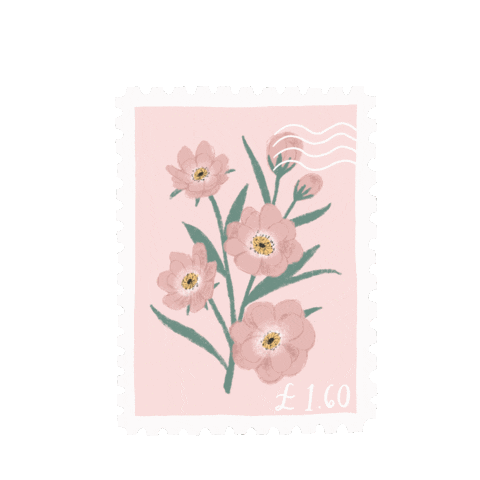

COLLAGE ART BY AVERY PANGANIBAN




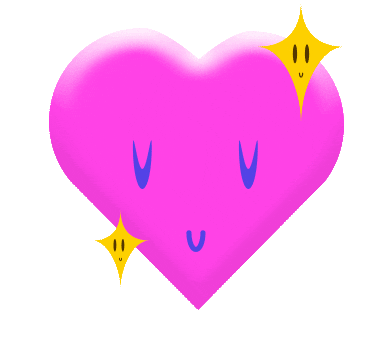

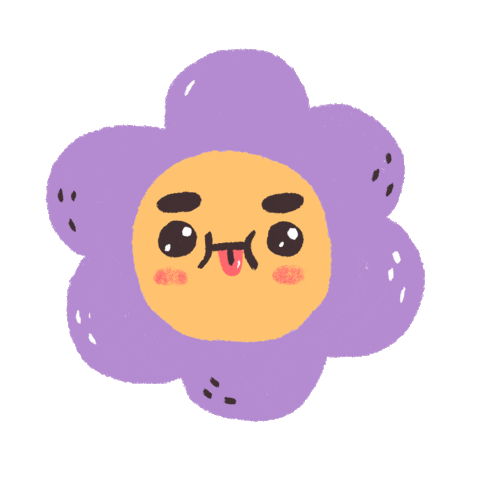
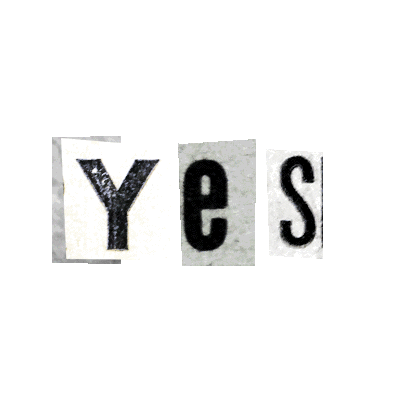

"
I made these collages over the course of about a year, whenever I was having a particularly hyper-focused ADD kind of night. I finished each collage in one sitting. Some of them had a subject in mind: the collage with the green hill and lanterns was made when I was first falling for my partner, for example. Others were just made based on one or two images I found and fixated on.
"
Avery Panganiban was born and raised in Chicago and went to college in Portland, Oregon. She enjoys photography, collage, embroidery, painting, and drawing. Her art usually features bright, contrasting colors and repeating patterns. She finds inspiration in contemporary Asian artists, like Yayoi Kusama, Ai Weiwei, Takashi Murakami, and Yoshitomo Nara.
For more of Avery, follow on Instagram @averypan



IMAGE DESCRIPTION: A collage in a spiral-bound notebook. From top to bottom: text reading "one ticket"; a lucky cat standing in front of a lotus flower; a circle reading "Noborito Japan: postage paid"; purple stripes alternating vertical / horizontal going downward; triangles going downward; Tetris tiles; a silhouette of a man's head, Japanese text and a Japanese stamp over an image of a body of water.





IMAGE DESCRIPTION: A black background collage; from top to bottom: several spaceship escape pods; a man's eye made of small red dots; alternating up/down arrows; a red and white horizontal line; red screws; red dashes above teal blue wave caps. Along the right edge of the collage are alternating square and circle outlines.
IMAGE DESCRIPTION: A collage in a spiral-bound notebook. From top to bottom: purple moth, dried flower petal; smling cartoon heart; an airplane; a bookshelf; a cluster of trees; two faces; a lemon wedge; a house; a cartoon bee; a pig with a bowl and chopsticks; the words "I, anonymous"; flowers and hearts on top of a green galaxy image.
IMAGE DESCRIPTION: A collage in a spiral-bound notebook. From top to bottom, left to right: A black and white image of an ocean wave, rotated vertically; blue stripes and diamonds over a black and white image of a city skyline upside-down; black and white cacti plants.


IMAGE DESCRIPTION: A collage in a spiral-bound notebook. From top to bottom: sunshine on trees behind the word "charming" next to two smiling stone statues; a horizontal line of pink petals and green leaves, separating the top and bottom halves; yellow clouds above a green hill; a chandelier with a rose hanging down; a drawn man reading a book on the hill; a green, frog-like cartoon standing on two legs facing lanterns floating across the clouds.
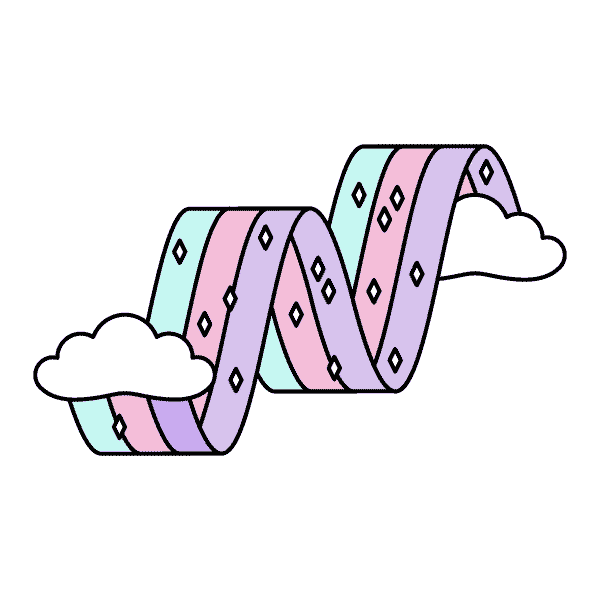
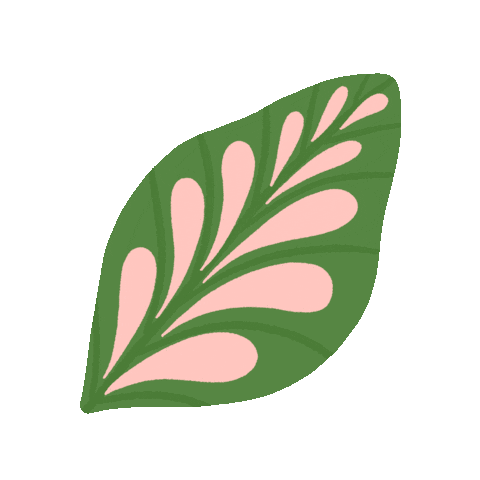

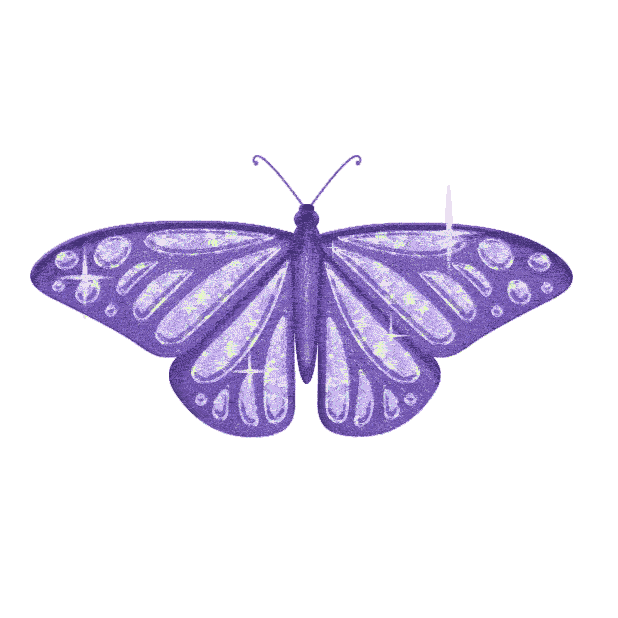
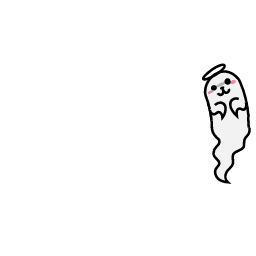


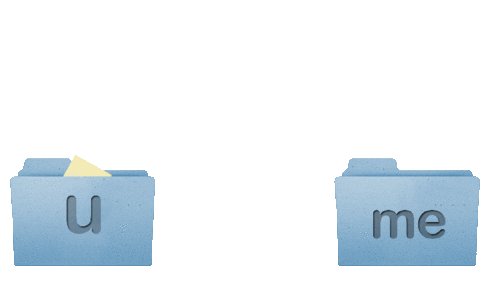


Cut It Up:
THE SWEET
AND SOUR
OF COMING OUT
By Janine Sy
If we ate oranges together, she would always set aside the juiciest, sweetest, choice pieces for me and my sister.
In that moment, she cut the orange for me. She cut into her own aspirations and happiness, to preserve mine.
The universal gesture of love from an Asian parent, especially an Asian mother, is the cutting and serving of fruit. For some reason, they just seem to really like citrus. Especially oranges.
This feels right for many reasons. Like citrus, my parents (especially my mama) have a tough rind that protects the sweetness in the middle. Citrus fruits are often offered in mounds to the ancestors for prosperity, luck, and happiness. How fitting it is for our mothers to offer us their happiness perfectly prepared, cut up, and arranged for our nourishment.
The means by which my Chinese (Hokkien-speaking, ethnically Chinese, but born and raised in the Philippines) mama cuts an orange is the same every time. She grasps the orange with her worn, plump hands with the navel out and methodically dissects it into halves, quarters, and then to eighths. The process is essential to the gesture. It would be unthinkable for her to bring whole oranges to tennis practice or YMCA rec league basketball games. After all, how are the girls supposed to peel an orange when they have a game to play? If she did send me and my sister with whole oranges, she would take the time to make a small cut between the peel and the fruit so we were able to peel them quicker at halftime.
If we ate oranges together, she would always set aside the juiciest, sweetest, choice pieces for me and my sister. She would content herself with the dry, slightly more sour pieces instead, putting mine and my sister’s happiness ahead of hers. There was a time she would pack me rice and other food she had cooked for lunch. To my dismay, this was not what all the other kids at school were eating. I happily ate the same food at home, but at school it smelled and looked so different. I asked to have sandwiches for school lunches instead. To accommodate my request, my ma started waking up earlier every morning to make me these sandwiches instead of packing leftovers from dinner.
Even in her immigration story she took the bitter slices for herself for her family. She immigrated to the United States in 1992 after marrying my father. My papa was in search of a better life and opportunity and my ma married into this search. She left everything and everyone she knew in the Philippines to come to this new country with her husband as her only friend. She told us of hours spent in the mall just to kill time and to be in the proximity of other people, waiting for him to come home. On the other side of the ocean, my grandmother would call my mama sobbing, asking her to, “Toh lai.”
When the orange slices are served, the presentation has no middle ground. Sometimes the plate just slides into my line of sight from my periphery after dinner. Other times my mother would laud her own orange-picking skills from the local Ranch 99 (hotly debated, but, also known in other circles as 99 Ranch) exclaiming, “This batch looks ugly, but I chose the ones that are sweet inside! Lai chia!” But the sweetest times were after fights, when she would just say, “Here.” In those moments slurping up the orange juice, you knew the love was there and reconciliation was inevitable.
That love was tested when I accidentally came out to my ma on my 25th birthday — over Facetime, no less. Despite flying in between Seattle and LA for a week at a time for five months after my papa’s stroke, I avoided her like most people do with durian. I used to call her after dates with men and sob about how frustrated I was. When I started dating women, I ceased to call her altogether. I was afraid that through our interactions, her eyes would search mine and hear the girl who so desperately wanted to be known and loved, living her truth. I was caught in the dichotomy of wanting to come out and be loved as my authentic self but also not wanting to completely obliterate the hopes my ma had for me — not to mention, disrespecting all those dry, slightly sour orange slices she had eaten for our family, for me. Mama had posted the absolute cutest collage of me on Facebook the way only a mother could for my birthday. I Facetimed her to say thank you and found myself peppered with questions I had been avoiding for the past year:
“Dee chiew ah lo?” (How are you now?)
“Di chia zai kee beh?” (Did you eat breakfast already?)
“Kin nah am, di beh kiao di eh pieng yew choo kee boh?” (Are you going out with your friends tonight?)
Then eventually to questions about a new therapist I was seeing:
“Ee simi teh?” (What is he like?)
I skated and skated around the questions she was asking until finally she asked:
“What clientele does he specialize in?”
I managed to squeak out:
“LGBT Christians.”
She then said:
“Great! But what does that have to do with you?”
Then the truth that I had been threatening to spew came bubbling out:
“I’ve started dating women and I’ve been so much happier.”
She then looked at me for a long time and said:
“I have so many questions, but today is your birthday. I will ask you another day.”
In that moment, she cut the orange for me. She cut into her own aspirations and happiness, to preserve mine.
The following months were filled with silence — a silence that cocooned the previously active family group chat. Where there once were orange slices, juicy and split to be shared, there were now only whole oranges; each of us with our respective rinds protecting our sweet vulnerabilities in the middle.
Eventually my parents asked to Facetime me to “discuss things.” But when the time came around, there was no inquisition, or question like, “Why are you like this?” The only questions they asked were ones of concern about my current state and how I was now. There was my papa saying, “Man or woman, you have a lot of good going for you and don’t let anyone take that away from you,” and my mama saying, “You will always have a place to stay with me.” There was only the table with all of us seated around it enjoying a plate of oranges. Only this time, there are no dry or sour pieces.
Sometimes when I cut my own oranges, sour pieces do inevitably show up. After all, as much as I love my mama, I do live two states away and am “adulting.” So I cut my own. There were months before I came out when my heartache (sponsored by Break Up) felt overwhelmingly lonely, because all I wanted to do was to call her like I used to. Coming out to her opened a new dimension of her love for me. I never would have imagined that my religious Chinese mother would become my confidant again. But here we are, commiserating about my latest and greatest heartache. I no longer have to silently stomach that bitter taste because now, my mama is once again, just another phone call (or Facetime) away.
In those moments slurping up the orange juice, you knew the love was there and reconciliation was inevitable.
Janine Sy is an emerging writer that currently resides in the intersections of her queer and Asian-American identities. In her spare time, she can be found lifting in a garage near you.
For more of Janine, follow on Instagram @j9sy

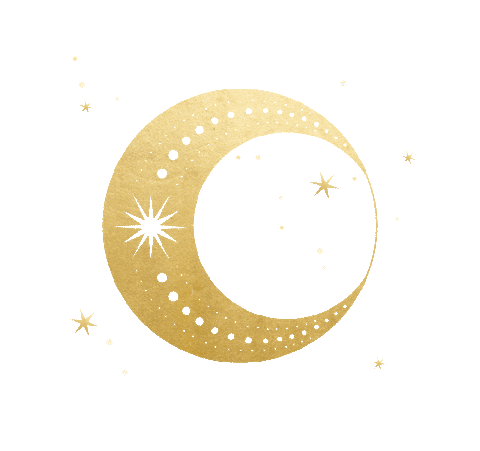
A Celestial Reading


BY IAN SIMMONS-FRANCISCO
aka The Luna Naughty








RECAP

In summary, we have had a strenuous past four years as QTPOC; however, we have grown from our past traumas to be able to align with our truest power. We are transitioning from these painful pasts to leave behind and are riding a new wave to our greatest self. To curate the future we want, take what you have learned about yourself within the past four years and create a snowball effect to land where you are aiming. Be patient with yourself and others.

PAST

Following the U.S. elections of the last week, the world is collectively transitioning through a pivotally challenging moment in history; although we have overcome many challenges,our bodies are still holding onto residual trauma and anxiety both emotionally and spiritually. It is important that we take a breath to fully process and release these energies before moving forward again. The journey is still a long one, and darkness clings to residual trauma and anxiety. Find a moment of stillness and joy: try some yoga, deep stretching, or watch a movie that makes you feel the feels. One might be able to see that the Nine of Coins has an overwhelming amount of past tribulations at hand, but we always have the power/wisdom in our own hands. As we transition towards the future, we can choose to leave the past in the past.
NINE OF COINS IN TRANSITION (SIDEWAYS)



PRESENT

DEATH
The term ‘death’ tends to be loaded with negative connotations; however, it just means that one segment of life is closing so that another chapter can finally begin.This card clearly mirrors the imminent change of U.S. presidency, but what does it mirror on a personal level? As the tide begins to turn on a global-political scale, how will you personally ride the new wave? The snake is a familiar motif for death because they shed their past selves to become an even better version of themselves. What parts of yourself from the last four years will you leave behind? What parts will become the foundation for your next evolution?

The Seeker of Wands and the Star in transition shows us that our lives are energetically and spiritually aligning with the Universe; however, there is still an immense amount of work to be done. Take things step by step and write out your next moves. Start with simple tasks and allow these small victories to snowball into bigger success. The Seeker of Wands is a master of creativity and has the power to create their own future. The Star is a motif that even in the darkest of times, you are manifesting and aligning to our brightest futures.
THE SEEKER OF WANDS &
THE WANDS IN TRANSITION (SIDEWAYS)
FUTURE

Ian Simmons-Francisco is a happa witch studying different types of oracle reading and psychology. Ian’s pronouns are they/them and in drag they go by ‘The Luna Naughty’
For more of Ian/Luna, follow on Instagram @thelunanaughty




HAPPY DIWALI!
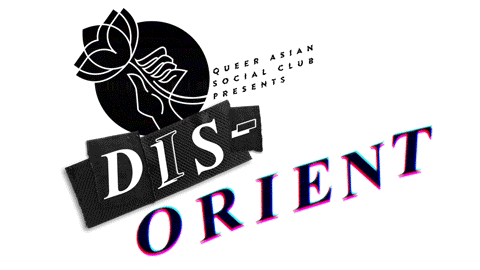
We hope you enjoyed this week's issue of DIS-ORIENT.
Check back next week for the next issue!
Stay alive! Stay safe! Celebrate the victories! We need you! We love you!
Want to submit to next season of DIS-ORIENT?



